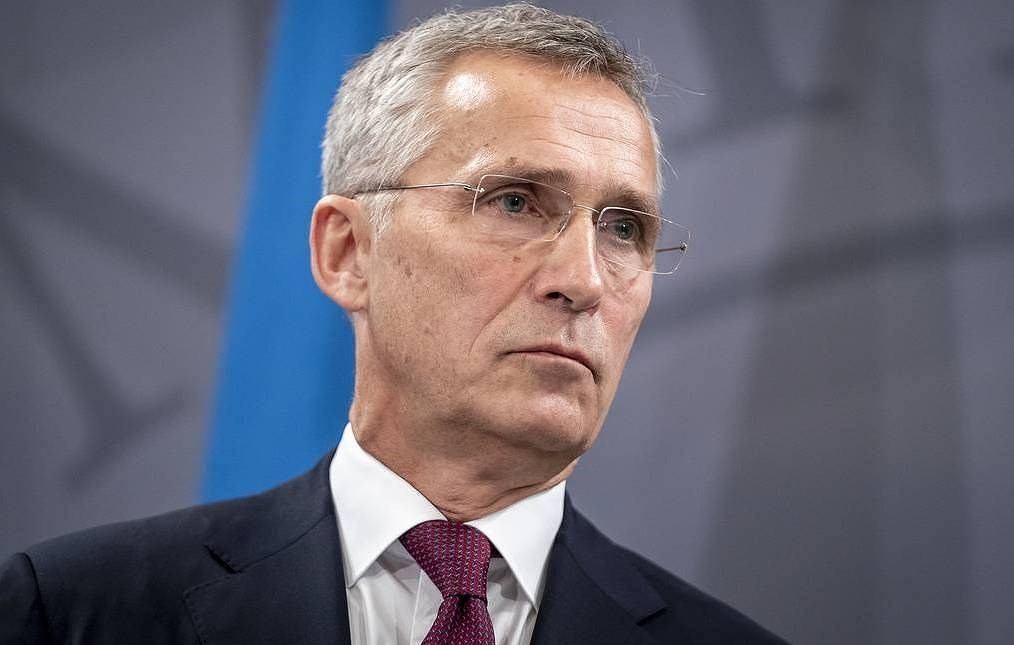NATO sending response forces to European allies
The western alliance aims to bolster its presence in Eastern Europe amid mounting fears regarding Moscow.
-

NATO Secretary-General Jens Stoltenberg
NATO is deploying its rapid response forces to ramp up defenses in the east of Europe, alliance chief Jens Stoltenberg said, in the face of Russia's special military operation in Ukraine.
"It is still a fluid situation. What we have seen is that the Ukrainian forces are fighting bravely and are actually able to inflict damage on the invading Russian forces," Stoltenberg said Friday following a video summit with the heads of NATO member states.
"It is a full invasion of Ukraine," he claimed. "They are moving towards Kiev, and the stated goal is to change the government of Ukraine," his allegations went on.
#NATO Leaders met to address the gravest threat to Euro-Atlantic security in decades. #Russia bears full responsibility for its war against #Ukraine. We are now making significant additional defensive deployments of forces to our eastern flank. https://t.co/IeocHWib8V
— Jens Stoltenberg (@jensstoltenberg) February 25, 2022
Stoltenberg also warned that the Kremlin's so-called "aggression" had created a "new normal", which he argued jeopardized Europe's broader security beyond Ukraine.
"We have already strengthened our deterrence and defense," Stoltenberg said as the West grows more concerned in regards to Moscow.
NATO allies activated the alliances' defense plans, Stoltenberg further added, and the western nations are deploying elements of its Response Force on all arenas - land, sea, and the air - to "strengthen our posture and to respond quickly to any contingency."
This constitutes NATO's latest step toward bolstering its defenses as the West is spreading its army in the countries surrounding Ukraine as a "precaution" to deter any Russian "threats".
"We have over 100 jets at high alert, operating in over 30 different locations and over 120 ships from the high north to the Mediterranean," Stoltenberg declared.
He further claimed that the military efforts are to preserve peace and prevent an attack and the spill-over of any war into countries around Ukraine.
The official did not disclose how many response forces the alliance was sending to the region, saying it was up to its top military commander.
NATO's response forces comprise 40,000 personnel, and it includes an 8,000-strong high-readiness contingent with air, sea, and spec-ops that it can deploy within days.
Russian President Vladimir Putin authorized a special military operation in Donbass over the constant Ukrainian shelling of Lugansk and Donetsk People's Republics, whose independence Moscow recognized a few days ahead of the operation.
Moscow's military operation in Ukraine is not a beginning of a war, but rather an attempt at curbing a global one, Russian Foreign Ministry spokesperson Maria Zakharova said Thursday.
"First of all, it is not a beginning of a war. It is very important. Our desire is to prevent the developments that could escalate into a global war. Second of all, it is the end of a war," Zakharova told NTV, a Russian broadcaster.
Russia has for months been warning of the threat posed against it by NATO's attempts to expand eastward, which happened simultaneously with an increase in NATO military activity along Russia's borders, and batches of lethal weapons being sent to Ukraine, prompting Russia to request security guarantees from the West. Washington failed to provide the guarantees.
Tensions had been soaring between Russia and Ukraine over the Donbass region and announcing it was intending to sign a decree recognizing the independence of the Lugansk People's Republic (LPR) and the Donetsk People's Republic (DPR).
The announcement had been preceded by intense Ukrainian shelling of the two republics, and Russia's recognition of their statehood was a move to protect the innocent civilians from the Ukrainian aggressions.

 4 Min Read
4 Min Read









